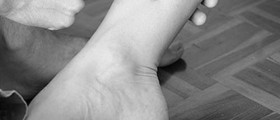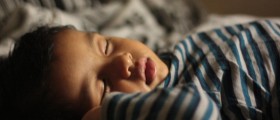
Also known as bedwetting, enuresis comes in two different forms, primary nocturnal enuresis and secondary nocturnal enuresis. The former involves the recurrent involuntary passage of urine during sleep, usually in children who have never achieved consistently dry sleeping. Secondary nocturnal enuresis is more sporadic in nature, occurring in those that are capable of going for long periods without wetting the bed. Primary enuresis is normally the result of a developmental delay. This condition normally resolves over time. Around thirty per cent of children wet the bed by the age of 4 ½.
Risks
A number of factors exist that can predispose an individual to persistent bedwetting. Some children might be genetically predisposed to bedwetting. The risk of enuresis occurring in a child increases if one or both parents were susceptible to bedwetting in the past. Night time bedwetting is often closely associated with daytime incontinence. Developmental delay is also an important factor when it comes to nocturnal enuresis. Children with premature delivery or behavioral disorders are also more likely to be susceptible to enuresis. In some cases, neurological problems like spina bifida or cerebral palsy can increase the likelihood of the occurrence of nocturnal enuresis. Constipation, disturbed sleep, obstruction of the airways, stress, and the consumption of methylxanthines can all be potential risk-increasers with regard to nocturnal enuresis.
Treatment
For children under five years old, it is important that the parents are aware that the condition is likely to self-resolve over time. Parents play an important role in the management of nocturnal enuresis. Parents should try to manage their child’s fluid intake during the day, and make sure that the child maintains a healthy diet and avoids caffeine-based drinks. Parents should encourage younger children to empty their bladder before bed. It might also be an idea to keep a potty beside the child’s bed. If a child is consistently wetting the bed at night, it is important to encourage the child to use the toilet before returning to sleep. Another idea with regard to management might be to plan a schedule for waking the child during the night in order to escort him or her to the toilet. This might help to plant the idea of waking up to urinate in the child’s head. A reward system for successful dry nights might be a good way to encourage a child to keep his or her bed dry during the night. Rewards should not be removed in the case of a wet night.







-In-Infants-And-Older-Children_f_280x120.jpg)









Your thoughts on this
Loading...